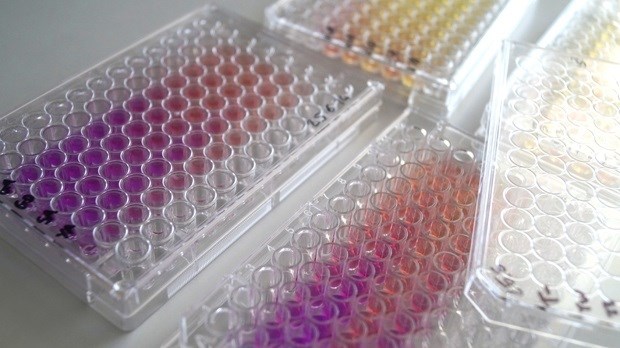Cancer treatments that harness the power of the immune system might be less effective in patients whose tumours carry incorrectly packaged DNA, according to US scientists.
The finding, published in the journal Science, might one day be used to help doctors decide which patients are most likely to benefit from immunotherapies.
Our immune system protects us against a range of diseases, but cancers can often avoid detection and destruction.
The new study suggests that errors in the quantity of DNA and how it’s packaged inside cancer cells – called aneuploidy – might affect the immune system’s ability to destroy the cells.
“These findings strongly suggest that aneuploidy helps tumours evade detection by the immune system,” said Professor Charles Swanton, from the Francis Crick Institute in London, part-funded by Cancer Research UK.
Immunotherapies which boost the immune system to recognise and target cancer cells have quickly become one of the most exciting areas of cancer research. But not every patient will respond to these kinds of treatment.
By studying large sets of genetic data the researchers at Harvard Medical School have now uncovered a potential link between how well patients respond to immunotherapy and errors in how the DNA inside their tumour cells is packaged.
DNA, genetic material which contains the instructions for how cells should work, is packaged into bundles called chromosomes. Normal cells have 23 pairs of chromosomes, but cancer cells frequently have more or less than this magic number.
The researchers looked at data from around 5,000 tumour samples from 12 different kinds of cancer held in The Cancer Genome Atlas – a large US research database. They found that in tumours with high levels of aneuploidy, genes which tell a cell to grow and divide were switched on more.
They also found lower levels of immune cells in those tumour samples. This suggests that the immune system wasn’t able to detect or fight those cancers as well as it should.
The researchers next looked at data from 2 previous trials of a type of immunotherapy for melanoma (a kind of skin cancer) called checkpoint inhibitors. They saw that patients whose tumours had high levels of aneuploidy didn’t live for as long after treatment.
“This work suggests that we need to continue exploring how aneuploidy comes about and how it is maintained,” added Swanton.
“If we can do that, then it might lead to ways of targeting this feature of human cancers which leads to such poor survival in patients."
References
Davoli. T. et al. (2017). Tumor aneuploidy correlates with markers of immune evasion and with reduced response to immunotherapy. Science. 355. DOI: 10.1126/science.aaf8399










































